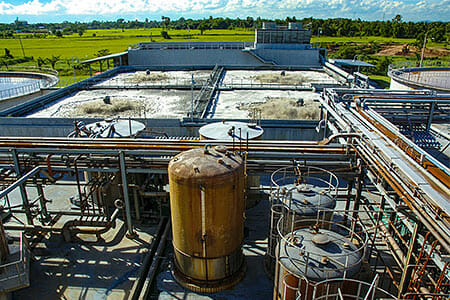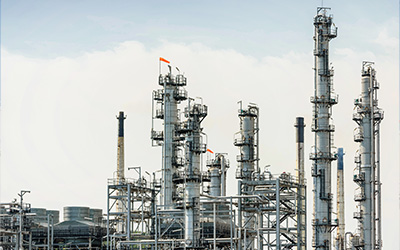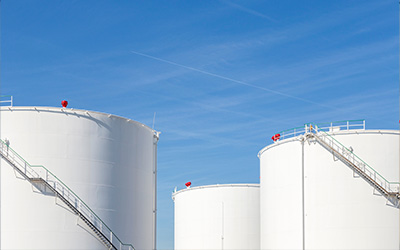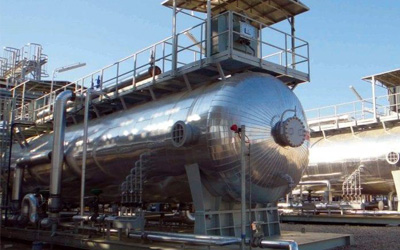INDUSTRY OVERVIEW
Waste Treatment
Waste treatment can refer to either municipal or industrial facilities. Regardless of the type of facility, they share many common foulants.
The equipment used to clean wastewater can vary from sour water treating equipment in oil refining to water hardness scale in Dissolved Flotation (DAF) systems. All will be encountering oils and greases and other organic species.
Anerobic bacteria and other sulfur reducing bacteria will generate H2S which will produce pyrophoric iron sulfide when in contact with low grade steels. All foulants can be troublesome for plant operators.
Waste Treatment Applications
![]() DAF systems will foul with carbonates which promote foaming and interfere with the water/air interface.
DAF systems will foul with carbonates which promote foaming and interfere with the water/air interface.
![]() Sour water units will foul with pyrophoric iron sulfides and light hydrocarbons and ammonia vapors.
Sour water units will foul with pyrophoric iron sulfides and light hydrocarbons and ammonia vapors.
![]() Oils and greases can rise to the top in transfer pipelines and severely restrict flow.
Oils and greases can rise to the top in transfer pipelines and severely restrict flow.
![]() Lubrication and hydraulic systems will foul from degraded oil treatment chemicals and other product ingress.
Lubrication and hydraulic systems will foul from degraded oil treatment chemicals and other product ingress.
![]() Air coolers (Fin-Fans) will foul on the air-side thereby reducing efficiency.
Air coolers (Fin-Fans) will foul on the air-side thereby reducing efficiency.
![]() Surfaces such as pump slabs, concrete parking lots, cooling tower basins and fill, etc. will foul with several products.
Surfaces such as pump slabs, concrete parking lots, cooling tower basins and fill, etc. will foul with several products.
![]() Filters can gather iron sulfide deposits, which not only cause the filter to lower its’ performance but also are also highly flammable.
Filters can gather iron sulfide deposits, which not only cause the filter to lower its’ performance but also are also highly flammable.
Our Chemicals for Waste Treatment
FQE® Chemicals has innovative chemical products for use at waste treatment plants.
These chemical families below are used to reduce the impact of foulants. These chemicals can be applied to safely decontaminate and neutralize the harmful contaminants.




